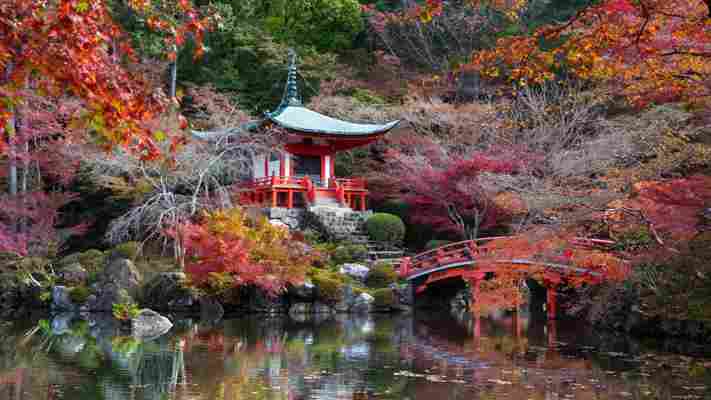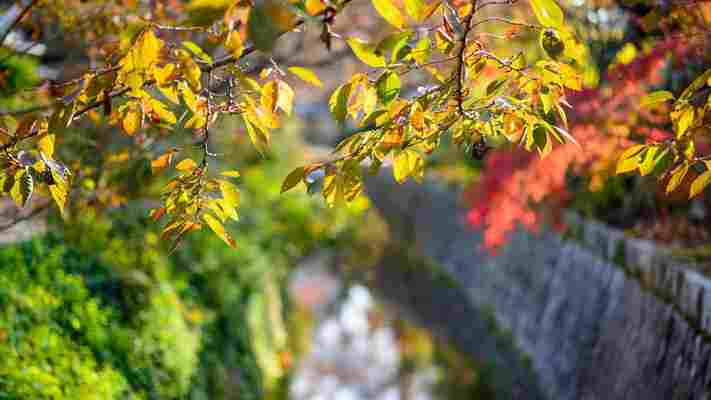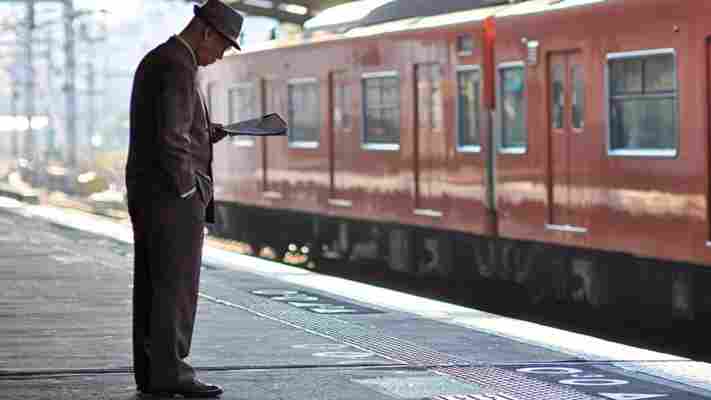“I’m sorry.” Hiroko’s voice, made for singing, sounds flat, provisional.

“What is it?” Struggling with the phone, I catch sight of the red digits on the hotel bedside table: 1:23. “My father now hospital,” says my wife, a dozen or more time zones away in Japan. “I’m sorry.”
I try to clear my head. Drunks are reeling through the warm Florida night around me, taking me farther and farther away. “What happened?”
“I don’t know.” I’ve never heard her so hesitant. “All white,” she says, using the English present tense, as if still speaking Japanese. “Doctor say his blood all white.”
It’s difficult
“I’ll be there soon,” I say, though I know that words are useless when it comes to fear. I curse my job for taking me so far. In my mind’s eye, I see my ultra-chic, motorbike-riding wife all but alone in a room of empty beds.
“It’s difficult,” she says again.
“But he came with you to the shrine last week? For a ritual visit?”
“I know,” she says. There’s another long pause. “They say, 91 years old, it can’t be helped. Almost they don’t care, he’s so old.”
“I’m sorry,” I say again uselessly, almost Japanese in my constant apologies. “I’ll be there on Tuesday.”
“No problem,” she says. “It’s difficult.”

Upon receiving news of his father-in-law’s hospitalisation, writer Pico Iyer reflects on a Japanese tradition of finding beauty in loss (Credit: Sean Pavone/Alamy)
You may also be interested in: • What it means to know when to leave • A 750-year-old Japanese secret • Is this the world’s last paradise?
* * *
Two days later, the phone rings again – a bright Key West morning, all birdsong and sunlight.
“He’s gone,” says Hiroko, her brisk and efficient self again.
“I’m so sorry.”
“It’s OK. All night I hold his hand. Always together my father.”
“Your mother?”
“Cannot understand.”
“Maybe that’s better?”
“Maybe.” For years now, Hiroko’s father, boyishly proud of his good health, has been tending to his beloved wife of 60 years, even as her mind and memory slowly come apart. Cycling to the shops to get their food. Heating up the green tea he chooses with such care as they gather on the tatami mat around a tiny table in their three-room wooden house in Kyoto. So lost at times in his own concerns, he hasn’t noticed – or chooses not to notice – that she begins asking the same questions again and again.
And then bracing myself, I ask, “Your brother?”
“I don’t know. I talk his wife.”

Before passing away at age 91, Iyer’s father-in-law had been boyishly proud of his good health (Credit: Trevor Mogg/Alamy)
Neither of us says a word. There’s nothing to say. For 23 years, no-one in the family has heard a thing from Masahiro, as I’ll call him. We know he lives in a suburb of Kyoto, 15 minutes from the creaking two-storey structure where his parents stay. His office is in the same neighbourhood as the elders’ day-care centre to which they’ve been taken three days a week for the past three years. But Hiroko’s only sibling, a Jungian psychologist two years older than she, decided to sever all relations with his family soon after he returned from getting his doctorate in Europe. He’s stuck to his resolve through sickness and typhoon.
“You’re OK?” I ask Hiroko. “I’m so sorry I can’t leave until Monday.”
“OK,” says Hiroko, who seems to have emerged from a fog. “Now must make new life.”
* * *
Masahiro’s on my mind, he’s all around me, as I rise from my bed a couple of return trips later. I’m 16 hours out of sync following the previous night’s flight, and when I draw back our thick grey curtains, I see just a few small white badges of light under a blueing sky. Hiroko is asleep in the only other room of our tiny rented flat an hour from Kyoto – she’s never lost the light sleep of a young mother – so I slip on a T-shirt and jeans in the dark and shuffle into loafers in front of our grey door. The beaker of salt Hiroko placed outside our anonymous entrance purifies us all, I remember her saying, as I steal down two short flights of stairs in our three-storey yellow apartment block, known as Lime Village.
Around me, the thin, straight, silent streets are empty. Most of the homes in our neighbourhood, Deer’s Slope, are Western-style, two-storey family dwellings, with tiny gardens out in front, the spotless lanes that run between them so narrow they lack even sidewalks. You can walk down any street here as if it were your own. Under a child’s basketball net, a silver Mercedes dozes. Across the way, a midnight-blue Audi sits beside a chirpy sign advertising English lessons.
I hurry past the only house that takes up a full block, the place’s gargoyles and silver cornices, its ornamental garden just visible behind the kindly old lady who sometimes pulls back the gate, marking it out as the haunt of a gangster. In the mini-park on the next block, I see a cartoon dog on a billboard smiling with relief as he scoops up his own poop.
Despite his grief, Iyer searches for signs of joy (Andreas Altenburger/Alamy)
When I arrive at the edge of the settlement, seven or eight minutes later, I can look across a valley of grey-tiled houses, a nine-family village, to the outline of hills far beyond.
Down the secret flight of stairs and through the middle of the mini-forest I hurry, to emerge in another century. A rambling two-storey wooden house overlooks a persimmon tree and fields. The vegetable garden that Mr Makihara from the ping-pong club tends in his autumn years is sprouting white radishes and lettuce. A giant emerald rice paddy in front of the pond looks like a vivid green hairbrush, overturned, bristles out.
The lane is so slim I’d have to press myself against a wall if a car came past. The speed limit here, a sign announces, is barely 12 miles per hour. I head up a steep slope and come to a stone torii gate, only a couple of feet taller than I am, slips of white paper fluttering from its top. Our closest place of worship – our modern neighbourhood is cleansed of all shrines and temples – is named after Susanoo, the bad-boy god of waves and storms who was banished for smashing a hole in the hall of heaven belonging to his sister, the sun goddess.
I’ve never been a great one for belief, or for trying to put words to what’s beyond us. Ten years in English boarding school was a lifelong training in scepticism, or at least in keeping to oneself anything one held sacred; every time I returned to my parents’ yellow house on a hill in 1960s California, the earnest, open faces of their philosophy students betrayed the poignancy of a longing for certainties. Yet, whenever I’m in the Deer’s Slope post office, I thank the kindly woman who seeks out gorgeous stamps to affix to every postcard so that someone unknown to her in a distant land can enjoy a piece of Japan. I often tell the cheerful head-scarfed matron in the Deer’s Kitchen bakery how tasty her ‘hard bread’ is. It doesn’t seem amiss to pay respects to the local spirits, who, Hiroko assures me, are the ones who ensure our health and long life.
Iyer cleanses himself at a shrine before paying respects to the local spirits who are said to ensure health and long life (Credit: Scott Sim/Alamy)
A light comes on the second I walk across the darkened courtyard. I push a button next to the old stone basin in one corner with my foot, and cold water flows out of a dragon-headed sprout. I pick up one of the blonde wooden ladles laid out on two rough boulders inside the basin and rinse my right hand, then my left. Then my mouth.
The shrine itself, a few steps away, is nothing but a rickety open-fronted wooden building behind a sign that says it’s been here since 1575. Along the rafters are cracked paintings of scenes from classic plays, a yellowing portrait of a fresh-faced boy, faded depictions of the court, splinters of wood showing through the walls. Behind a barrier, keeping me from the cricket-chattering trees, statues of two mythic lion-dogs guard a wooden box, and 10 stone lanterns – some with paper in their openings, some blank-eyed – protect a compact courtyard.
Now must make new life
I pull the thick rope, clap my hands twice to summon the gods and close my eyes, hands joined. “Thank you,” I think, “for looking after our home, and our family, this community, while I was gone. Thank you for protecting my mother and me in California. Thank you for keeping Hiroko safe. And her brother not so far.”
Then, as the sun shows up above the hills, I turn around and begin to head back, through the silent village and up the stairs to our bright, rectilinear neighbourhood of vending machines and hair salons. An old man is taking a walk through the sleeping streets. “Good morning,” he calls, in the democracy of first light.
In our central park, a square-block expanse across the street from our flat, the local dogs are gathering on the ridge for their daily 06:00 conference. The first executives, in suits, are lined up at the bus stop on the silent main drag and Hiroko, I know, will soon be ringing her bell and sitting stock-still for 20 minutes in front of her homemade shrine before heading off, in a black leather jacket and cat-cool shades, to her job selling overpriced English punk clothes in the temple town two train stations away.
Autumn is the season when everything falls away.
Pico Iyer: “Autumn is the season when everything falls away” (Credit: Pascal Mannaerts/Alamy)
Pico Iyer is the author of many books on travel. This article was adapted from his most recent book, Autumn Light, available now in the US and Canada and in the UK and elsewhere .
Travel Journeys is a BBC Travel series exploring travellers’ inner journeys of transformation and growth as they experience the world.
Join more than three million BBC Travel fans by liking us on Facebook , or follow us on Twitter and Instagram .
If you liked this story, sign up for the weekly bbc.com features newsletter called "If You Only Read 6 Things This Week". A handpicked selection of stories from BBC Future, Culture, Capital and Travel, delivered to your inbox every Friday.
